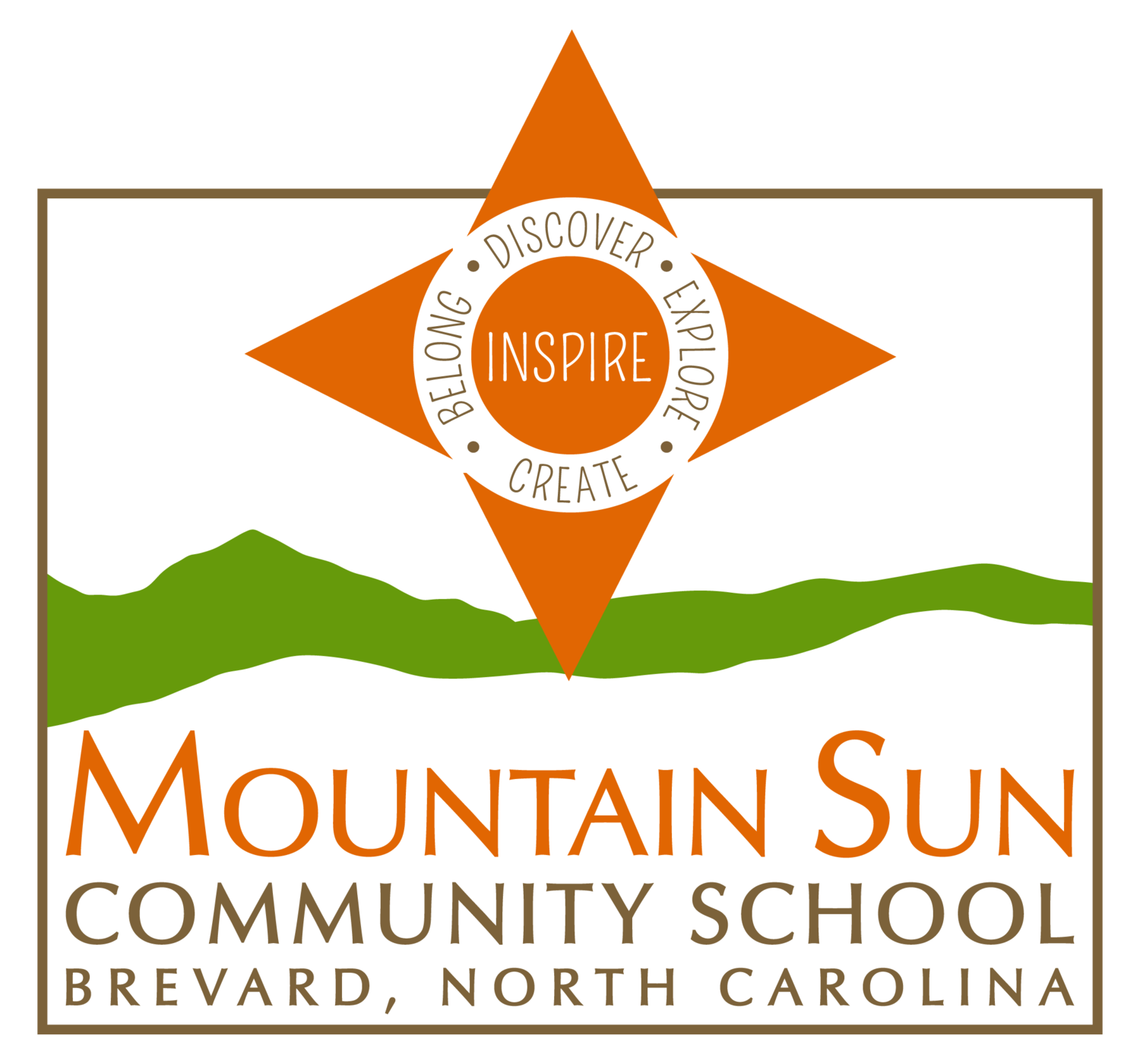Follow the Child
“Education is a natural process carried out by the child and is not acquired by listening to words but by experiences in the environment.”
Dr. Montessori did not believe that she invented a method of education. She simply studied children. And what she found was that every human being develops through a unique process of self-construction. Dr. Montessori noted that her pedagogy was meant to assist the child in this process. The role of the adults in a child’s self-construction is that of a guide, and we are here to serve rather than instruct.
So then, how are we at Mountain Sun Community School serving children as they navigate through their self-construction? Dr. Montessori was clear that the child’s educational environment is key to assisting the development of children into happy and fulfilled adults. She described it, after all, as an “Education for Peace.”
“The goal of [education in] the Montessori classroom...is first and foremost the development of skills necessary for a productive and fulfilling life. The best of the academic curriculums are...[of little value] if the child does not develop inner discipline, integrity, and respect for others and oneself.” (The Montessori Foundation/International Montessori Council: The Montessori Approach to Discipline)
If you’ve observed in our classrooms, you’ve likely noticed the following Montessori components:
Respect for the child: We recognize that each child is an individual capable of thinking, learning, and doing for themselves. We intentionally develop relationships with the children that uphold their personal dignity.
Freedom with discipline: Children are given freedom in many ways, specifically through movement and choice. However “unruly” a classroom may appear, there is structure and discipline established that may not be visible in a traditional way. Children are given choices within limits and those understandings are agreed upon in advance.
Mixed age-groups: Based on her studies, Dr. Montessori identified four clear Planes of Human Development. Our classrooms are intentionally designed to consist of the ages of children in those specific planes. She recognized those planes as birth to age 6 (First Plane), age 6 to age 12 (Second Plane), age 12 to age 18 (Third Plane), and age 18 to age 24 (Fourth Plane). Most Montessori schools divide those planes into three-year increments, as ours are.
Exploration: Children are encouraged to find things out for themselves, make mistakes, self-correct, and try again.
The prepared environment: Our teachers spend the majority of their time preparing the learning environment for the children. This includes the physical classroom where we focus on creating a beautiful space that matches the developmental plane for which we are guiding. In addition, teachers prepare the “cosmic” environment -- that in which we bring the world to the children, or we prepare to take them out into it.
The natural world: Children are innately connected to the natural world, and it is our duty to foster that connection. Dr. Montessori had a deep respect and reverence for nature. She believed that we should use nature to inspire children. She continually suggested that teachers take the children out into nature, rather than keeping them confined in the classroom.
Social freedom: Our students are given the opportunity to talk to each other during work time. We recognize, as Dr. Montessori did, that children are naturally inclined to collaborate and learn from each other. When this freedom is given, children are able to develop and tend to their relationships, as well as develop empathy and compassion in a community environment.
Intellectual stimulation: Our classrooms and curriculum are rigorous and challenging for each student as an individual. We identify what motivates them intrinsically and follow the child along their path. We meet students where they are and push just enough to promote their academic growth, and most importantly their love for learning.
In Montessori classrooms, the teacher is not the focal point. We arrange it physically as such, as well as through our demeanor in the classroom. The adults are considered a portion of the prepared environment and we prepare ourselves physically, emotionally, and spiritually so we are an aid, rather than an obstacle, for this extraordinary process of self-construction.
“The greatest sign of success for a teacher...is to be able to say ‘The children are now working as if I did not exist.’”
Written by Becky Langerman

